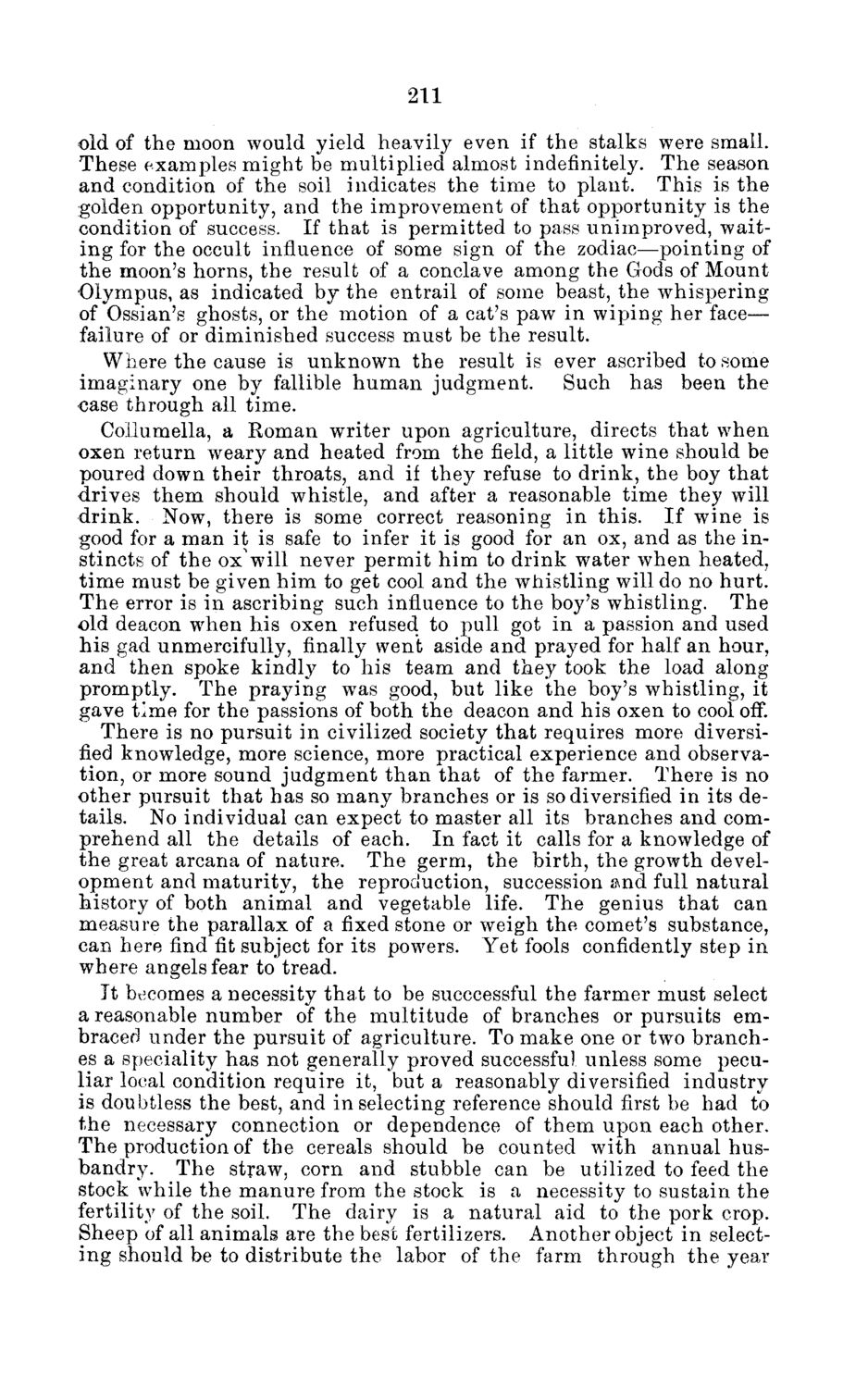| |
| |
Caption: Board of Trustees Minutes - 1876
This is a reduced-resolution page image for fast online browsing.

EXTRACTED TEXT FROM PAGE:
211 old of the moon would yield heavily even if the stalks were small. These examples might be multiplied almost indefinitely. The season and condition of the soil indicates the time to plant. This is the golden opportunity, and the improvement of that opportunity is the condition of success. If that is permitted to pass unimproved, waiting for the occult influence of some sign of the zodiac—pointing of the moon's horns, the result of a conclave among the Gods of Mount Olympus, as indicated by the entrail of some beast, the whispering of Ossian's ghosts, or the motion of a cat's paw in wiping her face— failure of or diminished success must be the result. Where the cause is unknown the result is ever ascribed to some imaginary one by fallible human judgment. Such has been the €ase through all time. Collumella, a Roman writer upon agriculture, directs that when oxen return weary and heated from the field, a little wine should be poured down their throats, and if they refuse to drink, the boy that drives them should whistle, and after a reasonable time they will drink. Now, there is some correct reasoning in this. If wine is good for a man it is safe to infer it is good for an ox, and as the instincts of the ox "will never permit him to drink water when heated, time must be given him to get cool and the whistling will do no hurt. The error is in ascribing such influence to the boy's whistling. The old deacon when his oxen refused to pull got in a passion and used his gad unmercifully, finally went aside and prayed for half an hour, and then spoke kindly to his team and they took the load along promptly. The praying wTas good, but like the boy's whistling, it gave time for the passions of both the deacon and his oxen to cool off. There is no pursuit in civilized society that requires more diversified knowledge, more science, more practical experience and observation, or more sound judgment than that of the farmer. There is no other pursuit that has so many branches or is so diversified in its details. No individual can expect to master all its branches and comprehend all the details of each. In fact it calls for a knowledge of the great arcana of nature. The germ, the birth, the growth development and maturity, the reproduction, succession and full natural history of both animal and vegetable life. The genius that can measure the parallax of a fixed stone or weigh the comet's substance, can here find fit subject for its powers. Yet fools confidently step in where angels fear to tread. It becomes a necessity that to be succcessful the farmer must select a reasonable number of the multitude of branches or pursuits embraced under the pursuit of agriculture. To make one or two branches a speciality has not generally proved successful unless some peculiar local condition require it, but a reasonably diversified industry is doubtless the best, and in selecting reference should first be had to the necessary connection or dependence of them upon each other. The production of the cereals should be counted with annual husbandry. The straw, corn and stubble can be utilized to feed the stock while the manure from the stock is a necessity to sustain the fertility of the soil. The dairy is a natural aid to the pork crop. Sheep of all animals are the best fertilizers. Another object in selecting should be to distribute the labor of the farm through the year
| |